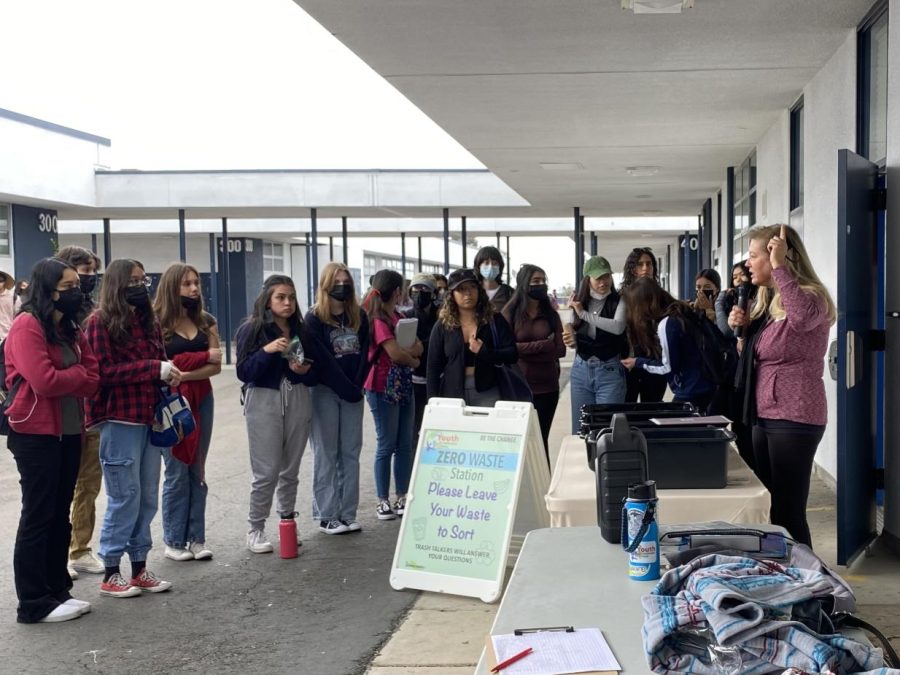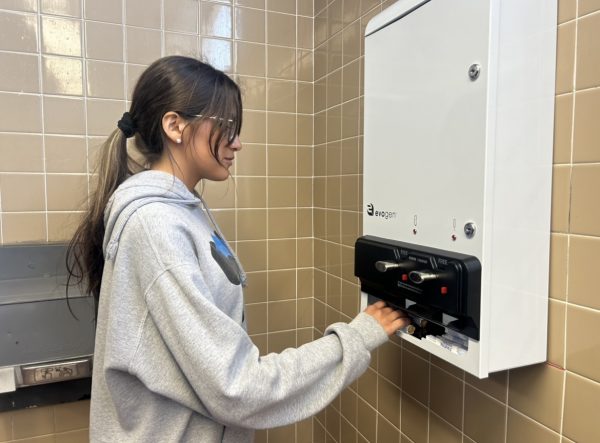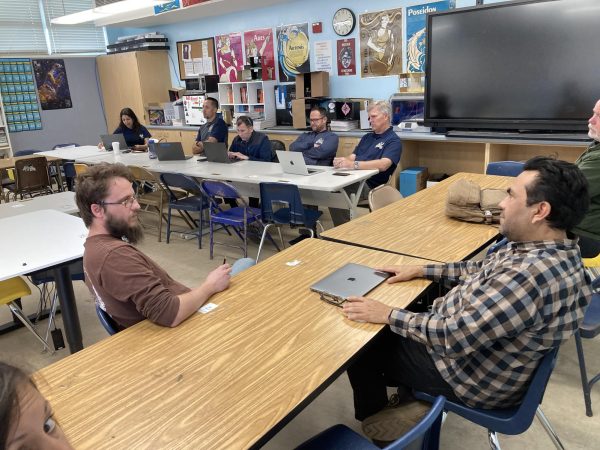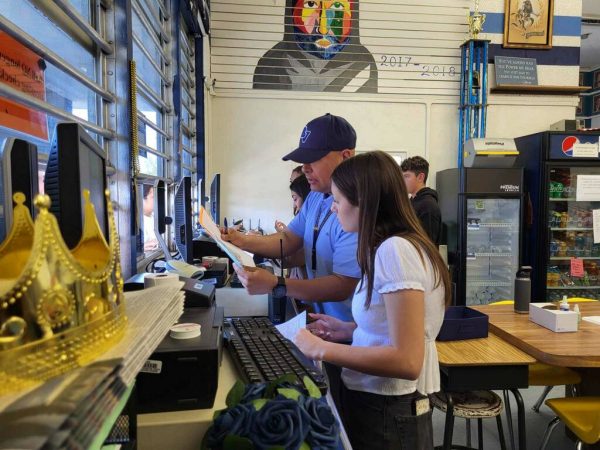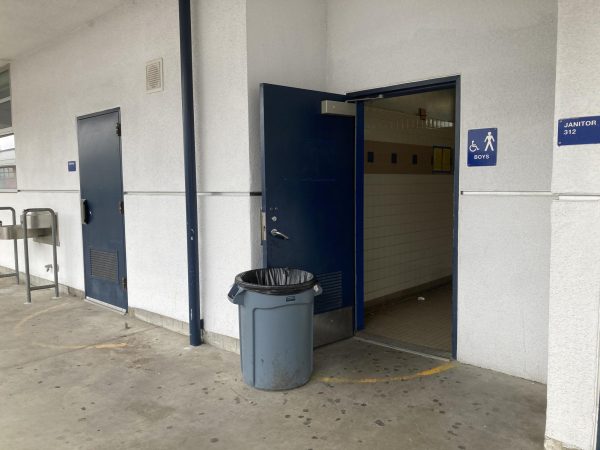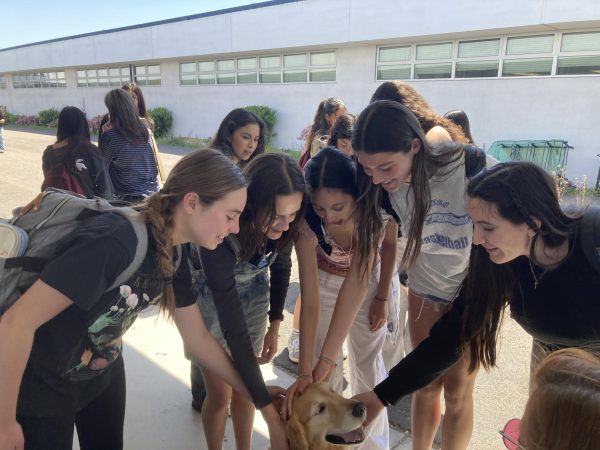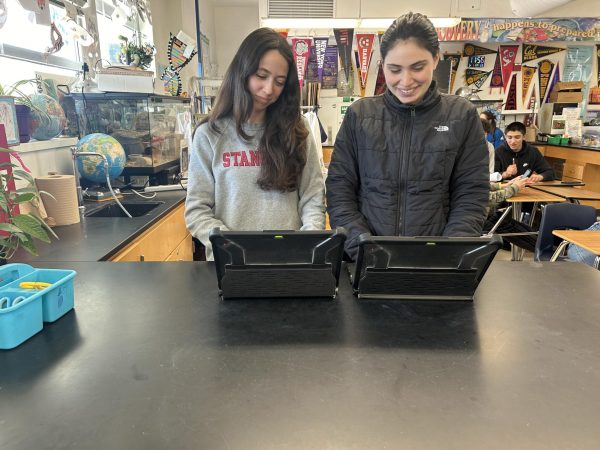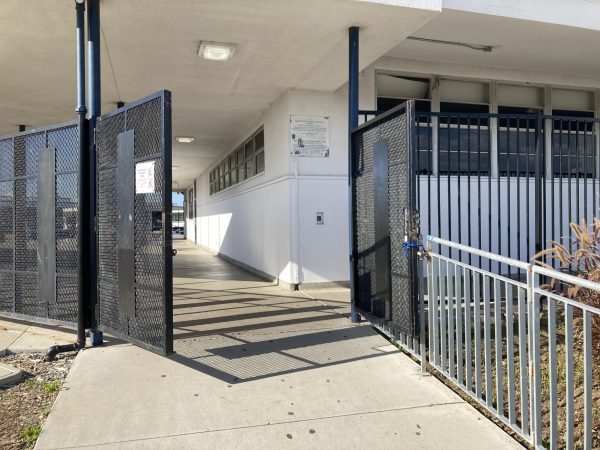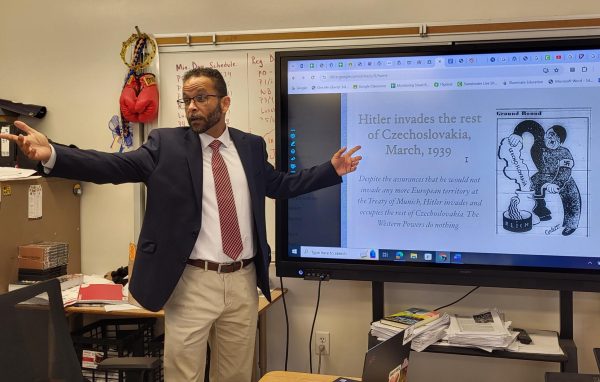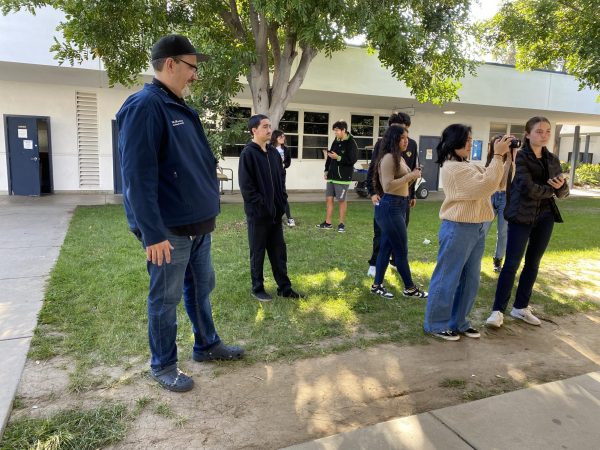Paving the way for composting
Executive Director of South Bay Sustainable Communities Tina Matthias presents about composting during lunch on Feb. 1. As lunch progressed the group of students crowding around 302 got bigger.
Starting Monday, Feb. 7, the recently implemented Composting Program will be in full swing at Bonita Vista High (BVH).
On Feb.1, Network Founder and Executive Director of South Bay Sustainable Communities (SBSC) Tina Matthias visited Bonita Vista High (BVH) to teach students how to compost. Her visit marked the first steps to implementing the Composting Program at BVH.
“[We started the Composting Program] to teach students how to be more sustainable throughout their daily lives, as well as to teach their families. I believe that our future relies upon our youth; it’s their future too. They need to take charge and start educating themselves on how to have a more sustainable and healthy future,” Matthias said.
Matthias’ first appearance during lunch on Feb. 1 in front of room 403 garnered a crowd of students eager to sign up and be part of the composting program. Prior to this event, Matthias visited BVH on Jan. 26 to evaluate the campus and locate spots where compost sections could be. She began expanding this program to different high schools in July 2021.
“We [expanded to] Otay Ranch High (ORH) and Hilltop High (HTH),” Matthias said. “Since then, I’ve had people donate because they see [the] need to educate and teach others about our future. [Donations have] been helping to get BVH, HTH and ORH [composting stations].”
At BVH, Matthias decided the grass strip across from Composting Program Advisor Jennifer Ekstein’s classroom would be one of the locations for students to compost. In addition, plans to implement a composting bin in BVHs butterfly garden have been formalized by Matthias and Ekstein.
“I’m really excited to start [the composting program] up. I think students teaching students is probably the most transcendent lesson when it comes to zero waste. A lot of [this program] has to do with logistics and getting students to want to join and have the manpower to run this because [composting] is not an easy thing,” Ekstein said.
While Matthias is the representative from SBSC, student advisors and seniors Gabriella Bomjardim and Maya Jade Alvarez are the student representatives. Alvarez’s grandfather owns a large farm where they helped out with his mass-composting. That same practice has transferred to this project.
“I thought it was interesting for a high school to contribute to [composting] because a place with thousands of students creates a lot of accumulated waste,” Alvarez said.
Ekstein and Matthias advocate for the importance of composting and being environmentally conscious. Matthias explains how composting benefits the environment.
“One of the easiest things you can do to reduce methane [emissions] is [to] sort our trash. There’s less trash going to the landfills if you [sort] organics, non-organics [and] recyclables,” Matthias said.
Bomjardim was able to speak with Director of Nutrition Services for Sweetwater Union High School District Eric Span, who then introduced her to the idea of having a composting program at BVH. Ekstein praises Bomjardim for being the “driving force” behind the program after she organized meetings with Span and Matthias.
“She [Bomjardim] came to me one day and said, ‘Hey, are you interested in doing [the composting program?]’ I’m like, ‘Of course! I will support you in any way,’” Ekstein said.
Since the start of the composting program at BVH,
“[There are going to be] these sections every day; a breakfast group, a lunch group and an after school group. [Students] put [waste] in the bins, sort it out and clean it,” Bomjardim explains. “Then the lunch group comes in and does the same thing. The after school group comes in and they actually go in and plant [in the garden.]”
Matthias believes that it is important to educate about composting, and its impact on the environment. She acknowledges that her generation and older generations are “wasteful,” leading to the current conditions the environment is in. Ekstein hopes that this program will allow students to learn the significance of composting and “become a contributing member of society that cares about the environment.”
“I hope [the composting program will] continue after I graduate and that the younger generations will keep it going,” Bomjardim said.
Matthias notes the progress other high schools have made since starting their own composting program. She also recognizes that “there’s a lot of work to be done.” Bomjardim and Matthias believe that composting is a matter of understanding and appreciating the environment enough to keep it healthy and happy.
“We’re going to have kids that grow up [on this Earth], and we’re going to live through [climate change],” Bomjardim said. “If it keeps getting worse and worse from where it is now, it’s not going to be a good place for us.”
I am a junior at Bonita Vista High, and a second year staff member on the Crusader. I love being able to meet new people, and having conversations with...
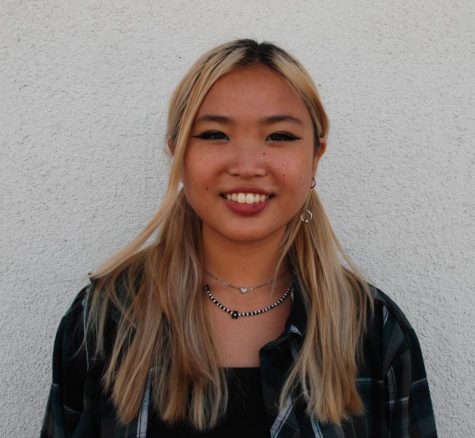
This year, I am co-Editor-in-Chief for 2022-2023. I’m a senior and a second-year Crusader staff member. Last year, I enjoyed my time serving as...
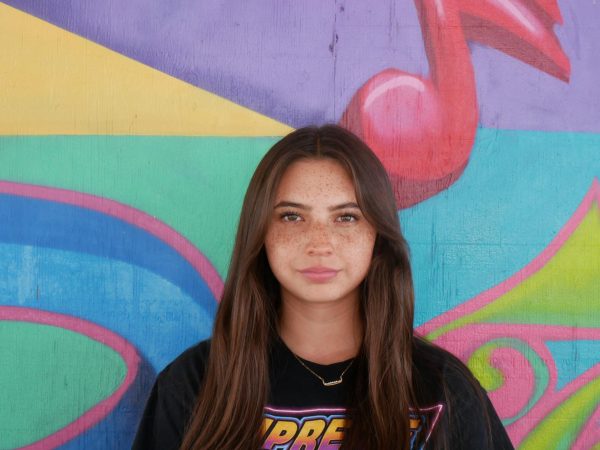
As a junior, this is my third year as a part of the Crusader staff. This year I am a News Editor and was previously the Staff Artist and Photographer....

